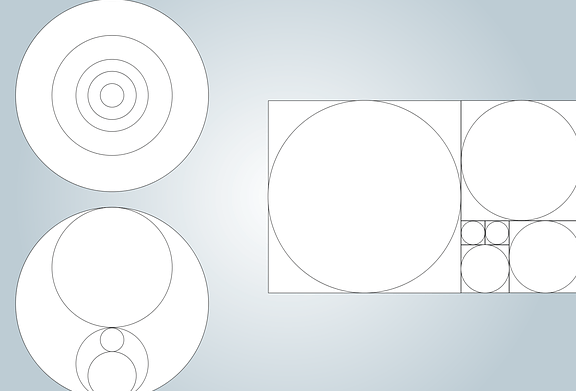What is the perfect number according to the Bible? The concept of perfect numbers has fascinated mathematicians and theologians for centuries. In this article, we will explore the definition of perfect numbers, their history, and their significance in the Bible.
Bible: The law of attaction
Biblia: La ley de la atracción
A perfect number is a positive integer that is equal to the sum of its proper divisors. In other words, a perfect number is a number that is half the sum of all the positive integers that divide it (excluding itself). The first few perfect numbers are 6, 28, 496, and 8128.
The concept of perfect numbers dates back to ancient Greece, where mathematicians such as Euclid and Pythagoras studied their properties. In the Middle Ages, perfect numbers were associated with the divine, and many believed that they held mystical powers.
The purpose of this article is to explore the biblical significance of perfect numbers and their use in the Bible.
What is a Perfect Number?
A perfect number is a positive integer that is equal to the sum of its proper divisors. For example, the number 6 is a perfect number because its proper divisors (1, 2, and 3) add up to 6. The next perfect number is 28, which is equal to the sum of its proper divisors (1, 2, 4, 7, and 14).
Perfect numbers have fascinated mathematicians for centuries because of their unique properties. For example, every even perfect number can be written in the form 2^(p-1) x (2^p - 1), where p and 2^p - 1 are both prime numbers. However, it is still unknown whether there are any odd perfect numbers.
The Biblical Significance of Perfect Numbers
The Bible makes frequent use of numbers, and many of these numbers have symbolic meanings. For example, the number 7 is often associated with completeness or perfection, while the number 12 is associated with the twelve tribes of Israel or the twelve apostles.
Here are some examples of the significance of numbers in the Bible:
The significance of the number 7 in the Bible
The number 7 is mentioned over 700 times in the Bible, and it is often associated with completeness or perfection. For example, God created the world in 7 days, and there are 7 days in a week. In the book of Revelation, there are 7 churches, 7 seals, 7 trumpets, and 7 bowls of wrath.
The significance of the number 12 in the Bible
The number 12 is also significant in the Bible, and it is often associated with the twelve tribes of Israel or the twelve apostles. For example, there were 12 sons of Jacob, who became the 12 tribes of Israel. Jesus chose 12 apostles to be his closest followers.
The significance of the number 40 in the Bible
The number 40 is often associated with testing or trial in the Bible. For example, the Israelites wandered in the wilderness for 40 years, and Jesus fasted for 40 days in the wilderness before beginning his ministry.
The significance of the number 144 in the Bible
The number 144 is mentioned in the book of Revelation, where it represents the 144,000 servants of God who will be sealed on their foreheads during the end times.
The Perfect Number in the Bible
While perfect numbers are not specifically mentioned in the Bible, there are several numbers that are closely related to perfect numbers and have symbolic meanings.
The use of the number 6 in the Bible
The number 6 is often associated with imperfection or incompleteness in the Bible. For example, in the book of Revelation, the number 666 is associated with the Antichrist.
The use of the number 28 in the Bible
The number 28 is the second perfect number, and it is closely related to the lunar cycle. In the Bible, the number 28 is associated with the priesthood and the sacrifice of Jesus.
The use of the number 496 in the Bible
The number 496 is the third perfect number, and it is closely related to the number 12. In the Bible, the number 496 is associated with the twelve tribes of Israel and the twelve apostles.
The use of the number 8128 in the Bible
The number 8128 is the fourth perfect number, and it is closely related to the number 28. In the Bible, the number 8128 is associated with the resurrection of Jesus.
Conclusion
In conclusion, perfect numbers have fascinated mathematicians and theologians for centuries. While they are not specifically mentioned in the Bible, there are several numbers that are closely related to perfect numbers and have symbolic meanings. The use of numbers in the Bible is a fascinating topic that continues to be studied and debated by scholars and theologians.
It is important to remember that while numbers have symbolic meanings in the Bible, they should not be taken out of context or used to support false teachings or beliefs.
Key Points:
- A perfect number is a positive integer that is equal to the sum of its proper divisors.
- The Bible makes frequent use of numbers, and many of these numbers have symbolic meanings.
- While perfect numbers are not specifically mentioned in the Bible, there are several numbers that are closely related to perfect numbers and have symbolic meanings.
| Number | Symbolic Meaning |
|---|---|
| 7 | Completeness or perfection |
| 12 | The twelve tribes of Israel or the twelve apostles |
| 40 | Testing or trial |
| 144 | The 144,000 servants of God |
Overall, the use of numbers in the Bible is a fascinating topic that continues to be studied and debated by scholars and theologians. By understanding the symbolic meanings of numbers in the Bible, we can gain a deeper appreciation for the richness and complexity of this ancient text.
For more information on the biblical perfect number, check out these related resources:
Bible: The law of attaction
Biblia: La ley de la atracción
 The Biblical Perspective on Caring for Nature: Insights and Lessons
The Biblical Perspective on Caring for Nature: Insights and Lessons The Biblical Perspective on the Theme of Peter: Unveiling the Truth
The Biblical Perspective on the Theme of Peter: Unveiling the TruthSi quieres conocer otros artículos parecidos a The Biblical Perfect Number: What Does the Bible Say About the Perfect Number? puedes visitar la categoría Entertainment and Miscellaneous.


Leave a Reply